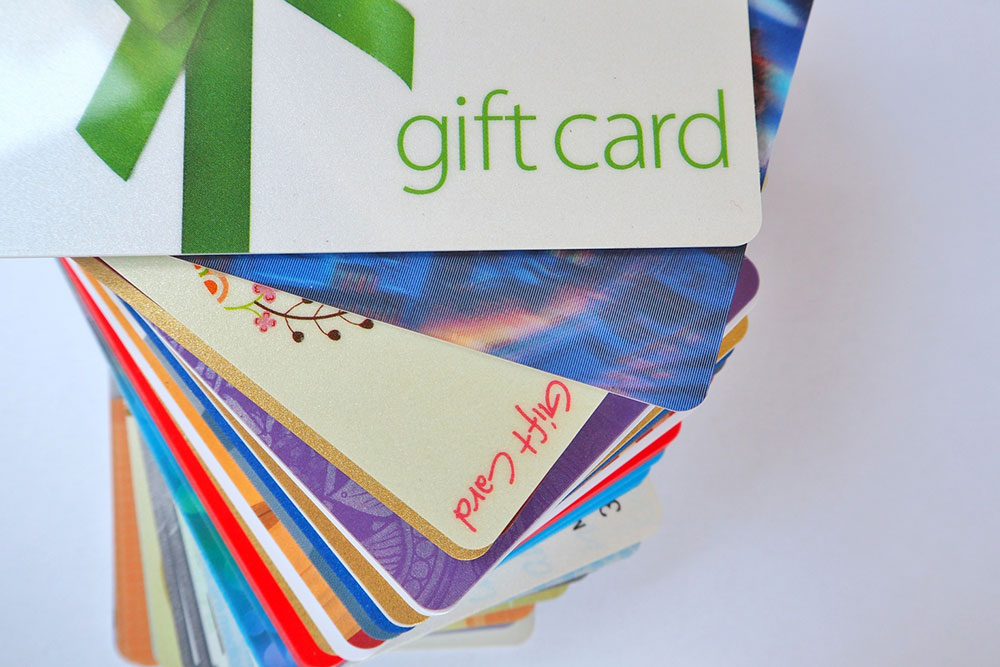6 common gift card mistakes to avoid

Gift cards are an excellent choice for a present. Gift cards are becoming increasingly popular due to supply chain issues, making it difficult for shoppers to find what they want. So, whether one receives gift cards or gives them, there are some mistakes to avoid. These are some common errors many customers unknowingly make. Knowing these mistakes can help one avoid them and make the experience of gifting a loved one pleasant.
1. Choosing the wrong store
When giving gift cards, choosing the right store for the recipient is important. This means taking into account their lifestyle, preferences, and interests. By doing so, selecting a gift card becomes a much easier process. To make the most out of the gift, look for a store that aligns with the recipient’s hobbies or habits.
When selecting a gift card for someone, it’s important to consider their preferences. If one knows that the person frequently shops at a specific store or website, it would be wise to gift them a card from that place. Similarly, if one knows they frequent a popular coffee shop, a gift card from that location would be a considerate option. Conversely, giving a card from a store that doesn’t match their interests can be disappointing, as they may be unable to use it.
Investing some time in finding the perfect store and ensuring the recipient can redeem the gift card is crucial. Remember that liking a particular store doesn’t necessarily mean the person one is gifting it to will also enjoy it. Remember that many options are available, so take the time to think about what the recipient would appreciate the most.
2. Buying a used gift card
Gift card scams have become widespread; unfortunately, many people fall prey to them. One of the most common scams is the sale of fake or used gift cards to unsuspecting customers. Scammers can capture the serial numbers of unpurchased gift cards by scanning their magnetic strips. This way, when the card is activated, the scammer can use it. It is important to follow certain precautions to avoid falling victim to gift card scams.
Firstly, never purchase gift cards from auction sites. The safest way to shop for a gift card is through the store’s official website. Alternatively, one can purchase authentic gift cards from reputable resale websites. If one prefers to buy gift cards offline, always ask the receptionist or clerk for unofficial displayed cards. This way, one can be sure that one is getting a fresh and unused card. By following these guidelines, one can help protect oneself from gift card scams and enjoy the benefits of gift cards without any worries.
3. Confusing different types of gift cards
Broadly, there are two gift cards: closed and open loop. The latter is not tied to a specific retailer or brand. It is backed by a renowned credit card issuer or a bank, so one can use it anywhere. However, such gift cards may have an activation fee (between $3 and $7).
On the contrary, Closed-loop cards are meant only for use at dedicated websites or stores. However, they have no fees. So, when shopping for gift cards, know which type will best meet one’s needs.
4. Picking Visa, Mastercard, etc
As stated, there are two types of gift cards. However, one must strictly avoid the ones from card networks for two reasons:
- They are impersonal.
- They are not as good as the other gift cards because the fees eat up the balance.
Using a Visa gift card at any establishment that accepts Visa is possible. However, if the card is inactive for a few months, the balance on the gift card may be subject to a fee. Typically, this fee ranges from 2 to 3 dollars per month. If the gift card is left unused for a year or more, or if the cardholder waits to use it until a big holiday shopping sale, they will lose some of the balance or money on the card.
In addition to the fee charged while shopping with the card, the cardholder will also pay an extra amount by delaying using the card. So, it is not recommended to use such gift cards. Instead, one such shop for dollar-for-dollar gift cards to avoid paying unnecessary fees.
5. Not reading the fine print
The fine print often has information one must always read before paying for any gift card. It will have the expiration dates and the terms of use. Federal law prevents non-use fees and requires a minimum of five years for a gift card to expire. However, be careful with the open-loop gift cards, as they have a tight expiration date. Other gift cards one must examine closely are the promotional gift cards offered as rewards or bonuses. Many such cards expire soon. So, one must ensure one redeems and exhausts the gift cards before expiration to avoid wasting them.
6. Paying shipping fees
One must never buy a gift card that charges a shipping fee. These are not worth the extra money because one does not get any surplus value. Most authentic sellers do not charge this added amount. So, buy only from a store or website that does not levy this fee.







